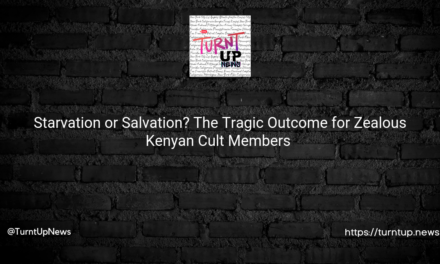💸 Who Said Charity Doesn’t Pay? US Aid Group Catches $900K Inside Job in Congo 😱
TL;DR:
Eagle-eyed auditors at a US-based aid group, GiveDirectly, have revealed that a whopping $900,000 has been siphoned off from their Congo programs. The culprits? Employees of the organization colluding with outside actors. An investigation is ongoing with the hope of salvaging a fraction of the lost cash, but hey, it’s looking like a tough haul. This illustrates an age-old question: Can you really trust anyone these days? 🤔
Full Scoop
An inside job worthy of an Ocean’s 11 plotline – that’s the drama unfolding at GiveDirectly, a US-based aid group with a presence in Congo. It has been discovered that a slick $900,000 was stolen from the organization’s Congo programs. Talk about a serious office faux pas. Now here’s the kicker: the villains of this plot were some of its own employees, conspiring with outside mavericks. 😮
What’s more interesting is how this money heist played out. Starting in August 2022, the fraudsters managed to divert aid from more than 1,700 families over a span of six months. How’s that for a hustle?
According to the organization, “This fraud was only possible because of a specific change we made in our payment process to work in this remote, insecure region of (Congo).”🌍
Now, I’m sure you’re wondering, why the change? Well, the group usually helps people through mobile money. A nifty technology that allows you to send and receive funds using a SIM card, supposedly bypassing many forms of fraud. However, due to the inherent security issues in eastern Congo’s South Kivu province, the group had to amend its procedures.
To make it more convenient and less of a Survivor: Congo edition for the recipients, GiveDirectly decided to use its own enrollment team instead of independent mobile agents. Sounds like a smart move, right? But here’s the plot twist: some staff registered payment SIMs under the recipient’s names and pocketed them, then gave out different SIMs to recipients’ phones. Once GiveDirectly sent the cash transfers to the registered SIM cards, the culprits, aided by some outside accomplices, diverted funds meant for the needy.
So, it seems like in this case, charity really did begin at home – the fraudsters’ homes, that is.🏠💰
What makes this sadder is that it’s not just a one-off case. Last year, GiveDirectly confessed that over 1% of the money delivered was lost to fraud, the highest amount to date. But the plot thickens, as eastern Congo, where the group operates, is home to about 120 armed groups vying for control of mines and land, while millions of people are facing hunger and displacement.
Now, as a result of this theft, the organization has said that it’s working to ensure that the families impacted by the fraud get their money. But just how much of that stolen loot can be recovered is still up in the air.💨
While GiveDirectly’s actions sound commendable, it does raise a very important question about how corruption sneaks into even the most altruistic initiatives. With billions of development dollars flowing into Congo each year, Benjamin Hunter, an Africa analyst, points out the obvious, “It is unsurprising that the development sector is a target for corruption given its prominent role in the country’s economy.”
This fraud saga underlines the need for more stringent controls and safeguards, particularly in areas of the world where corruption is a way





